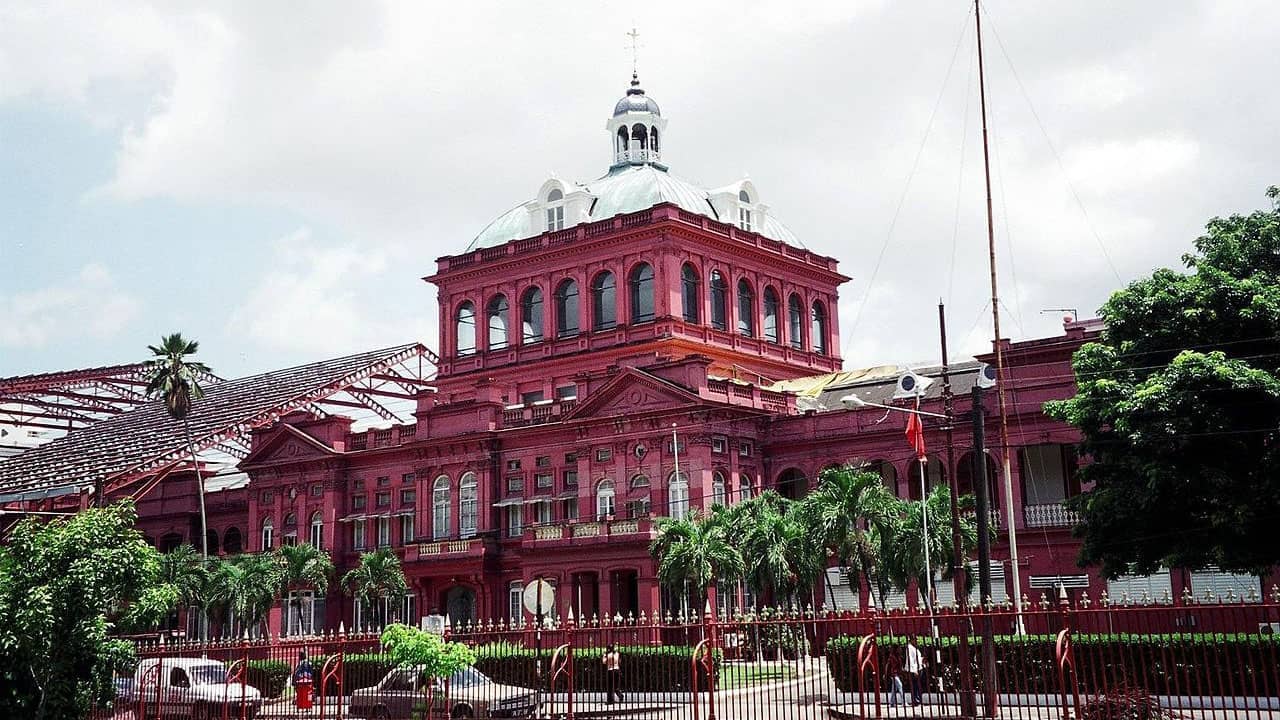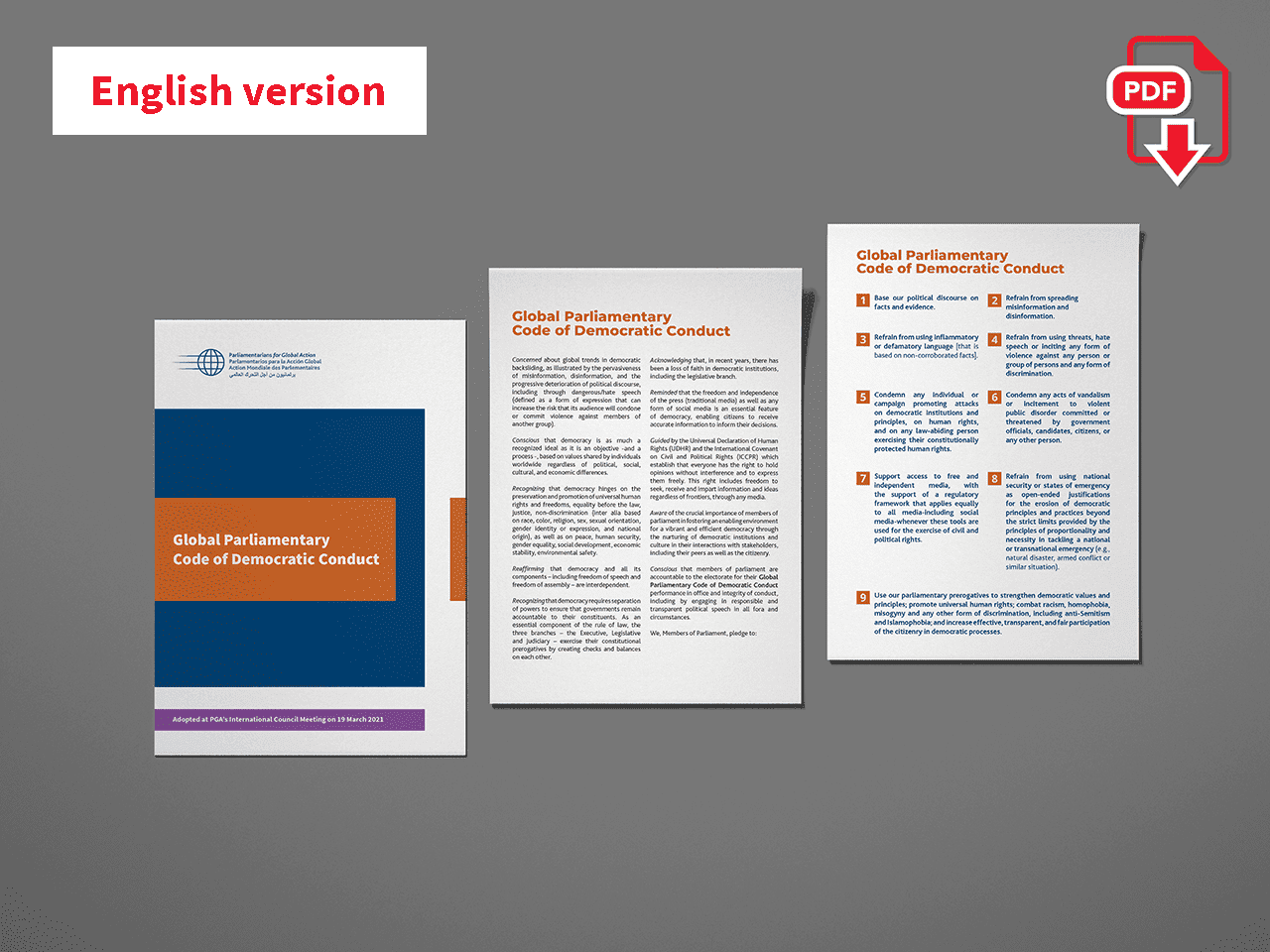
Random 00021 at English Wikipedia, POS Redhouse, cropped by PGA, CC BY-SA 3.0
The Hague/Port of Spain
As the world continues grappling with the spike of COVID-19 cases and restrictive measures imposed by governments, more and more consolidated democracies worldwide are facing a decline in the safeguarding of fundamental freedoms and the protection of democratic principles and institutions, shifting the balance in favor of authoritarianism, repression and, in some extreme cases, tyranny.
In recent months, Trinidad and Tobago has been facing political turmoil exacerbated by the impact posed by the coronavirus pandemic. The Police Service Commission (PSC), a constitutional independent body responsible for the appointments of Commissioner and Deputy Commissioners of the Police, saw how all its members resigned over allegations of political interference and lack of transparency concerning how the Government handled the situation.
According to news outlets and information shared by PGA members to the Secretariat and Members of the Parliamentary Rapid Response Team (PARRT), the “Merit List” of candidates for the substantive position of Commissioner of Police was not promptly sent to Parliament - in accordance with the regulations -, given some “high public official” involvement in the process. On 21 October 2021, Justice Nadia Kangaloo ruled that the appointment of an acting Commissioner of Police without Parliament’s approval was rendered unconstitutional and illegal, which instantly invalidated the appointments of Gary Griffith and McDonald Jacob as Commissioner and Deputy Commissioner of the Police.
The election of a Police Commissioner uncovered deep-rooted discrepancies within the country’s institutions and procedures, sparking at the same time grave concerns over the erosion of democratic principles such as the separation of powers. Parliamentarians for Global Action (PGA) affirms that the separation of powers is a cornerstone of democratic systems. The concentration of power in the hands of few can lead to the emergency of authoritarian trends, which may be conducive to disregarding other democratic principles and values and jeopardizing the possibility of enjoying freedom for all. The separation of powers is a testament to fairness and impartiality in the workings of any government, while it also promotes and provides for its accountability.
Additionally, PGA members in Trinidad & Tobago are raising institutional concerns regarding the appointment of Senators by the President of the Republic, Ms. Paula-Mae Weeks. Claims made by the leader of the Opposition Business in the Senate, Sen. Wade Mark, questioned the true independence and non-political alignment of some of the Senators appointed by the President. According to Section 40(2)(c) of Trinidad’s constitution, nine of the thirty-one Senators in Parliament should be appointed at the President’s discretion based on merit. This specific provision has incited new disagreements as some consider that independent Senators may be appointed according to their political alignment favoring the Executive interests.
During the Parliamentary sitting held on 21 October 2021, several Senators elevated these concerns triggering a private motion against them. The motion of censure was a response to the alleged use of “abusive and malicious” assertions by the Opposition Senators regarding the independence of certain members of the Senate.
In this respect, PGA notes that freedom of expression and speech is a well-entrenched right in constitutions and international treaties. It is an indispensable right for the correct functioning and meaningful participation in democracy. Nonetheless, it is important to stress that this right is not an absolute one. Freedom of expression may be limited too, where it is necessary to ensure the respect of the rights and reputation of others as contained under article 19(3)(a) of the International Covenant on Civil and Political Rights (ICCPR) or to avoid incurring in any form of cruel, inhuman, or degrading treatment, discrimination, incitement, or racism, among others.
To that end, PGA adopted under its Campaign on Democratic Renewal and Human Rights, the Global Parliamentary Code on Democratic Conduct. This Parliamentary Code operates as a tool for legislators to publicly affirm their support for democratic principles and tackle policy issues globally and domestically. It serves, moreover, as a mechanism for Members of Parliament to use respectful dialogue when engaging with peers, refrain from disinformation, and be held accountable for using dangerous speech, especially against vulnerable populations who are more likely to be targeted. Conversely, engaging in this type of discourse can lead to the commission of human rights violations, and in the most dramatic situations, it can fuel atrocity crimes.
2021 has become the 15th consecutive year of decline in global freedom, as reported by Freedom House. Countries, which have been regarded as stable or consolidated democracies, are experiencing severe deterioration in the enjoyment of civil, political, cultural, social, and economic rights. Even if Trinidad and Tobago is being given the political classification as “free,” these issues discussed above may feed authoritarian trends in the country. Only by successfully protecting and preserving democracy can we contain other forms of governance that limit the free enjoyment of civil, political, and human rights at large.
PGA, therefore, calls all the relevant authorities in the Government and Parliament of Trinidad and Tobago to respect the fundamental freedoms, human rights, and constitutional rights of all, including the freedom of opinion by Members of the political opposition. Moreover, we urge the Government to refrain from undertaking any measure that would interfere with the independent exercise of judicial, prosecutorial, and quasi-judicial or quasi-prosecutorial functions, like those attributed to the Commissioner of the Police.




